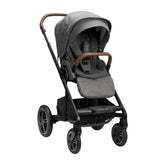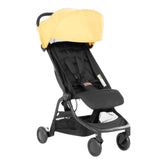A Parenting Dialogue: What to Do if Another Parent Yells at Your Child


Q: I’m furious. I just got a call from my spouse telling me that our downstairs neighbor came outside and yelled at our 3-year-old daughter. The problem? She says my daughter is going down the outside stairs too loudly, and it’s going to wake up her baby. I’m a mom – I get it that trying to get your kid to sleep is a big deal. But to run outside and scream at a 3-year-old? Give me a break! Fortunately, my husband was there to talk to this woman, but she was being really aggressive. Of course, we’ll teach our daughter to walk down the stairs more quietly and to be courteous and considerate of others. But she could have just as easily directed her comments toward my husband instead of yelling at a child. How would you have handled this situation?

The New Mom
A: If another parent yelled at my child, I would totally go over and have a nice talk. I would apologize for my kid being loud but also ask her not to yell at my kid as it may scare him. I would also tell her that I understand she was probably having a bad day and that I know how stressful it is to get a baby to nap. Maybe ask her for her baby's schedule. I would also tell her in the future if my kids are too loud to please come talk to me directly so that we can work things out. It's always good to be on good terms with neighbors and everyone – meaning, we have to see both sides to this situation.
-- Shawn, mother of one toddler
The Experienced Mother
A: I guess I’m old-fashioned, but if my child was misbehaving in some way outside of my sight, I would ask that another adult say something to her (and also to me). I’m not saying they need to be screaming or yelling. But I’m fine with an adult using a stern tone with my child if they are doing something they shouldn’t be.
I’m so tired of other parents never disciplining their kids. It seems to be the norm these days. I’ve frankly just given up on parks and playlands with my grandkids because at least half of the children there are completely out of control and their only “supervision” is too busy playing on their phones to notice when their kids are being obnoxious or hurting other kids. Yes, kids are kids.....but they can be taught what is and isn’t appropriate behavior. A three-year-old is capable of learning how to act quietly in an environment that calls for it. You can even make a game of it, a “how quietly can we sneak down the stairs” kind of a thing.
-- Katie, mom of four grown children
The Therapists' Approach
A: When another adult yells at your child, it is normal to feel protective, confused, and even upset. But before you jump in and engage with the other adult, experts recommend taking a step back and giving yourself a moment to reflect.
"It is important to pause, recognize how you are feeling, and take some deep breaths before having the conversation. This will help you fully assess the situation and give you a moment to identify how you want to respond," says Brittany Schaffner, IMFT-S, LPCC-S, a crisis education supervisor for the Behavioral Health Pavilion and Nationwide Children’s Hospital.
Next, make sure your child is ok and try to determine what happened. They need to understand that you’ve got their back and that you are their supporter in every situation.
"If you don't first understand what's on your child's mind, then you can't decide what to do about it," says Laurie Holman, PhD, a psychoanalyst with clinical training in infant-parent, child, adolescent, and adult psychotherapy. "Even if it's somewhat embarrassing for you as a parent that your child's behavior wasn't viewed well, your first priority is your child, not you or the other adult."
Once you have checked in with your child and let them know that you love them and will keep them safe, then you can try to handle the concerns with the adult. There are several ways of doing this, but the key is to remain calm, courteous, and empathetic. While it is not alright for another adult to yell at your child, it is still important to be respectful and willing to listen. By doing so, you are demonstrating to your child that though an issue may be troubling, you can still choose to react in a calm, steady way.
The Holistic Approach
A: Dealing with an overreacting adult is an uncomfortable situation, but it happens. For some parents, handling a direct confrontation may feel extremely difficult. Instead of engaging in an argument or stewing for days over what you should’ve said and done, stop and consider what other solutions you can try that may be in your child’s best interest.
- Be present and actively engaged with your kid. Give them space to play on their own, but keep an eye on them, and don’t get distracted by your phone. This minimizes the opportunity for another adult to interfere.
- Ask questions. If you didn’t see the interaction that caused a problem, give yourself a moment to fully assess the situation.
- Be direct without being argumentative. Let the other parent know that this is your child and that you’ll handle it from here.
- Talk to your kid directly. Regardless of the situation, your child is more important than a stranger. Address them first, especially if they are visibly upset.
- Try to use humor to lighten the mood. Not everyone is comfortable with confrontation and sometimes it’s a situation that really isn’t a big deal. Making a joke can help ease the tension.
- Make a passive-aggressive comment. Saying something like, "We don't yell at strangers. It's not very nice," can really throw an angry adult off their game. It also helps you sound calm, even if you don’t feel that way.

The Takeaway on What to Do If Another Parent Yells at Your Child
Though you may have to sometimes act as a mediator in a confrontation with another adult, as a parent, your first job is always caretaker. If someone yells at your child in public, first focus your attention on your child. Make sure they’re alright. Have a talk about the actions that lead up to the incident.
As you begin to talk with the other adult, calmly let them know that you are trying to understand what is happening so that you can take appropriate action. Remember, just because your kid has messed up in some way doesn't mean you have to put up with a stranger’s unreasonable behavior. You don't have to suddenly impose a harsh punishment on your child or force them to apologize just because some other parent would like to see you do so. If you’re not able to successfully de-escalate things, it may be safest and best to either pause the conversation or simply leave the situation.
You can also use the incident as a learning experience with your child. Demonstrating how to handle tense interactions helps children learn skills they need as they grow, like emotional regulation and conflict management. Talk to your child about what happened, how they felt, what they used to manage their feelings, and what they can learn from the experience. It’s also good to recognize that people make mistakes and that those mistakes are a chance to learn and choose something different. Consider asking your child what they think could have been different and talk about those ideas.









